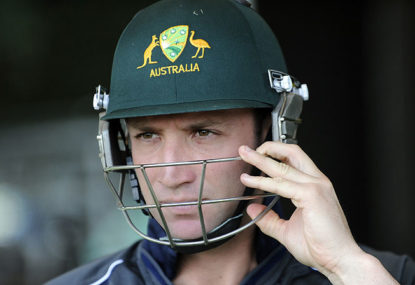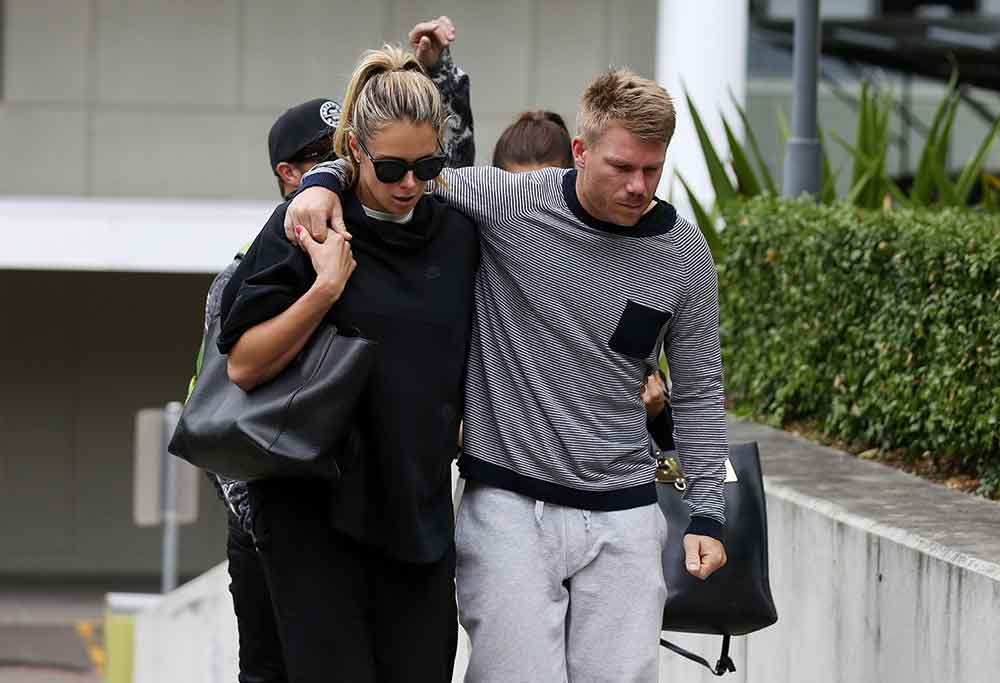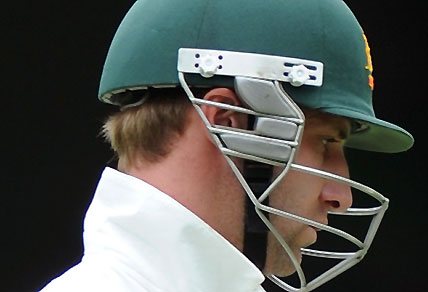The possibiliy of Jofra Archer's career coming to an early end will rob cricket of a bowler with so much talent
While a premature retirement isn’t the solution, he or England want, he may be forced into it if he can’t maintain a long run of matches.

“I never thought it would happen with me and the girl from Clapham.” So, went the 1979 pop hit from Squeeze.
When I first heard about the death of Australian cricketer Phillip Hughes – two years ago this month – that song lyric was the first thing that came into my head.
It is strange to muse on how our mind connects one entirely different thing to another and surprises us with the unexpected parallel. But like everyone else I never thought it would happen.
Throughout the sudden shock news of him falling at the crease, being rushed to hospital, lying unresponsive in a hospital bed, I still never thought it would happen.
This wasn’t the ending. How could it possibly be? Historic and past events both told and simultaneously confirmed to us what should happen.
A long and hard won recovery; back playing for South Australia and maybe even a return to the Australian team. That Ashes century that earlier had eluded him, now discovered and made more poignant as a result of his struggles and subsequent victory over them.
Even the Englishman, I among them, would have applauded him. Devoid of partisan rivalry and seeing only the human triumph over adversity.
Maybe we hoped for too much. Instead a struggled return, a Colin Milburn-esque attempt to recapture the past glories and ultimately failure. The mountain too high to climb, the summit, even the foot-hills, despairingly out of reach. But ultimately honour would have remained, well-kept and enhanced, radiated with admiration from Australian fans and the global cricket community.

Perhaps it is true that he would never have made it back. The damage or the risk too great to step out into the middle again. A future instead redirected into the media or coaching. No longer experiencing the game from within but still close to it.
No longer consumed by scoring runs but still close enough to feel the heartbeat and rhythm of the game. Maybe even that would have proved too much?
To remain perpetually within touching distance of the thing you love most and could do better than anything else in your life. But never able to hang on to it again or retrace those old footsteps.
Sure, you could watch it, talk about it, and renew the old acquaintances. Be part of the landscaped scene. But would it not be a poor imitation compared to standing at the centre batting for your country in the heat of a Test battle?
For most of us spectating in the outer ring is the best that we can hope for. However, when you have touched Olympian heights, is that enough? Perhaps the clean break is the only answer.
Former England batsman James Taylor may know a thing or two about this following his forced early retirement from the game. For his sake and those of us that admired him as an articulate batsman and now media participant we hope that he remains close to the game.
In respect of Phillip Hughes we will never know. The clock on his cricketing career forever stopped at 2:43pm on a November afternoon. His score of 63 not out remains forever in the record books as a cricket version of poker’s dead man’s hand.
It goes without saying that Phillip Hughes’ family would have accepted any other outcome in order to keep hold of the one they loved. Instead all we have now is the record.
A Test average of 32 and ODI of 35 does not place him among the greats. But at the age of just 25 and with 26 Test Matches behind him it is not difficult to imagine that his best was still to come.

Phillip Hughes began his Test career with a first over duck. Ever the fighter he responded in the second innings with a battling 75 that helped Australia to victory over South Africa.
He followed this with a rampaging century in each innings (115 and 160) in only his second Test against an attack comprising Dale Steyn, Morne Morkel and Mikhya Ntini.
Australia had their latest batting champion blazing onto the scene and the records appeared to be laid out waiting for him to eagerly swallow them up.
His technique was not one for the purist including a tendency to slash the ball in an arc between cover point and extra cover. Often he would shuffle back, give himself room and plant the ball back past the bowler to the boundary.
We never saw his best at the highest level in England, with the exception of one defiant innings of 81 not out, where he acted as the supporting cast to Ashton Agar’s ensemble performance. One was always left with the feeling that his self-honed, natural technique was susceptible to the moving ball on English wickets, where it always felt that the edge was never far away.
Trent Bridge was followed by scores of 1 and 1 at Lord’s. The second innings involving a slow 21 ball strangulation before eventually falling LBW to Graeme Swann. None could have imagined that this innings in 2013 would be his last ever Test match.
Following some decent one day performance over the winter and a double hundred for Australia A, a Test recall was strongly predicted. It is not fanciful to suggest that he would have toured England again in 2015.
It is with a certain sense of shame that I recall feeling glad that he was being considered for Test selection and that by virtue of that recall appear in another Ashes series.
I always felt that he was a batsman that the English bowlers could master. He played that last Test at Lord’s in 2013.
It is interesting to imagine how he may have done at the same venue in 2015, batting first on a flat and slow pitch.
That could have brought The Ashes hundred that his talent richly deserved and from there it could have been the 100 Test Matches and a career average in excess of 40. One that would befit the boy that promised so much on that South Africa tour of 2009.
But life doesn’t allow us to elaborate on ‘could have beens’. It bestows upon us only the bare facts, for which cricket helpfully records for all eternity in averages and scorebooks.
It also provides us with the moving image. The ongoing tapestry recorded forever on television and unreliably in those that encounter and observe us.
Phillip Hughes was loved by many with the majority never having met him. They gloried in his triumphs because he was either one of them or they saw within him a pure approach to batsmanship and the game.
Uninhibited but with a steely determination to do his best for his team. All of that is in the past now. It is both sad and ludicrous to say this of a man that would have only been 28 this year.
He will always be special. Special in the way that he played the game but also special in the way that he left us.
A talent glimpsed and to a degree unfulfilled. Almost a cricket James Dean. We saw enough to guess that he could have been great but will always be left wondering.
That song that I began by telling you about has just retraced its steps in my head. Through the three minutes or so run time it follows the life of its protagonist through marriage, children and ultimately separation and penury.
Phillip Hughes will never know any of these things. We are grateful for the last at least.